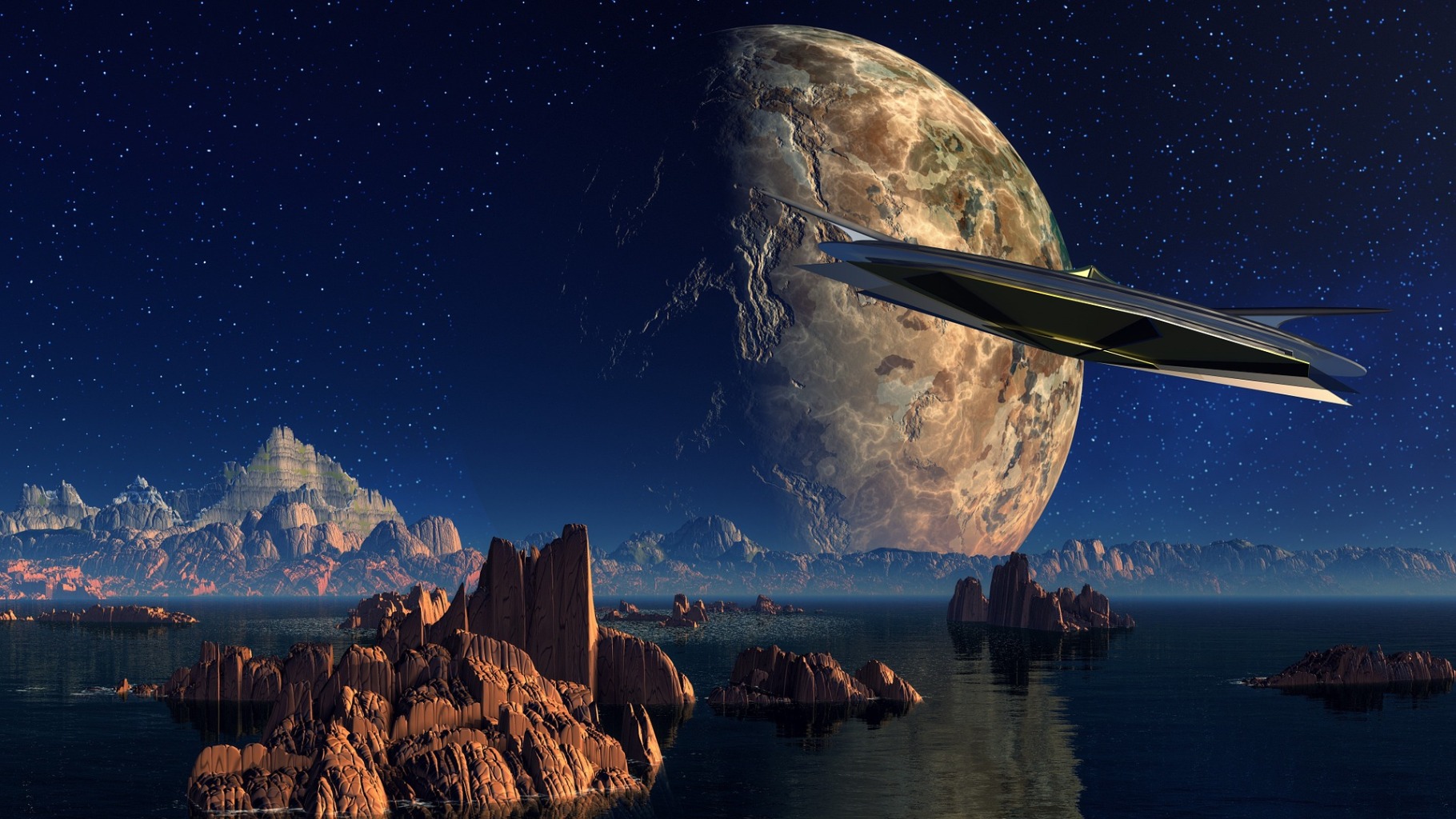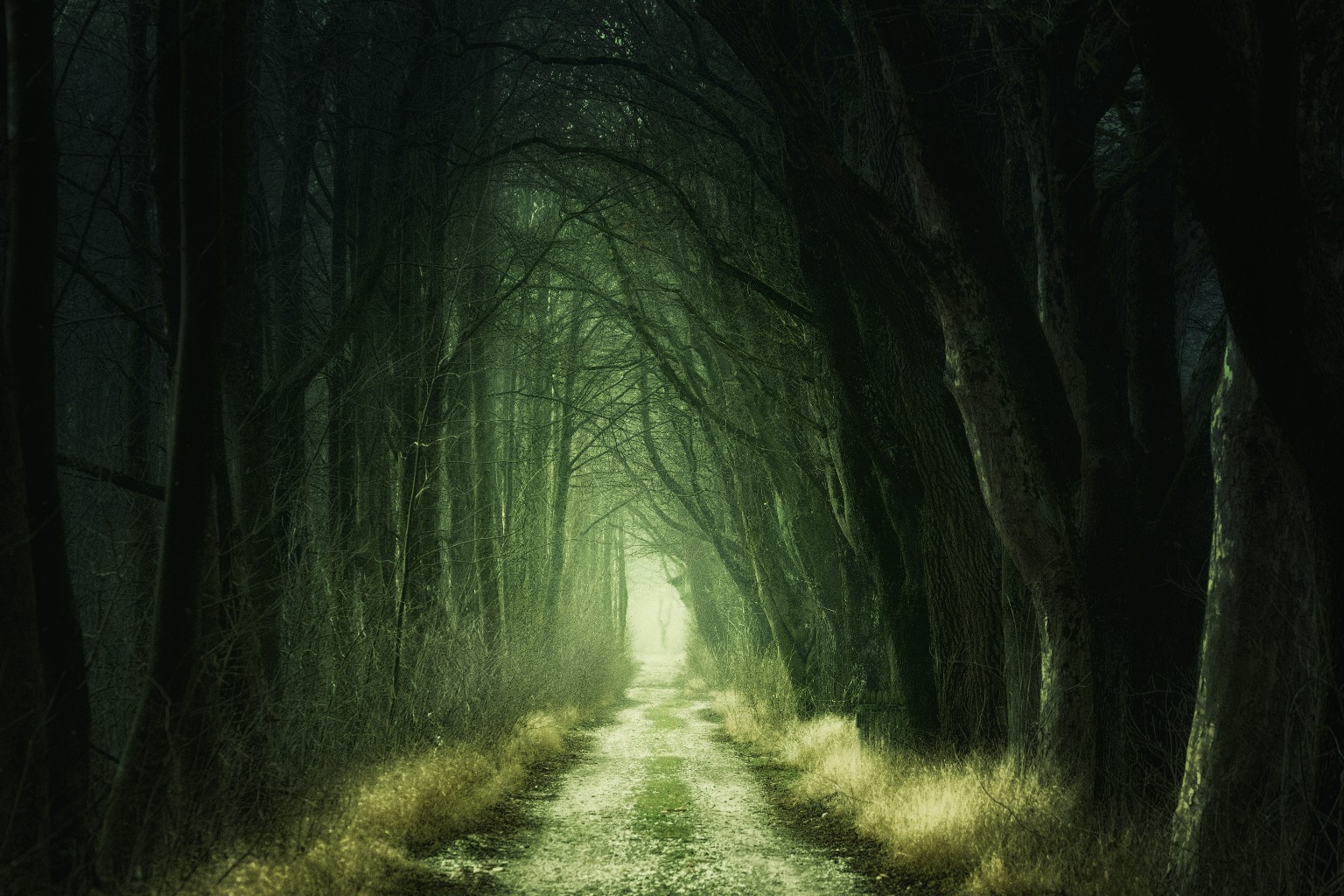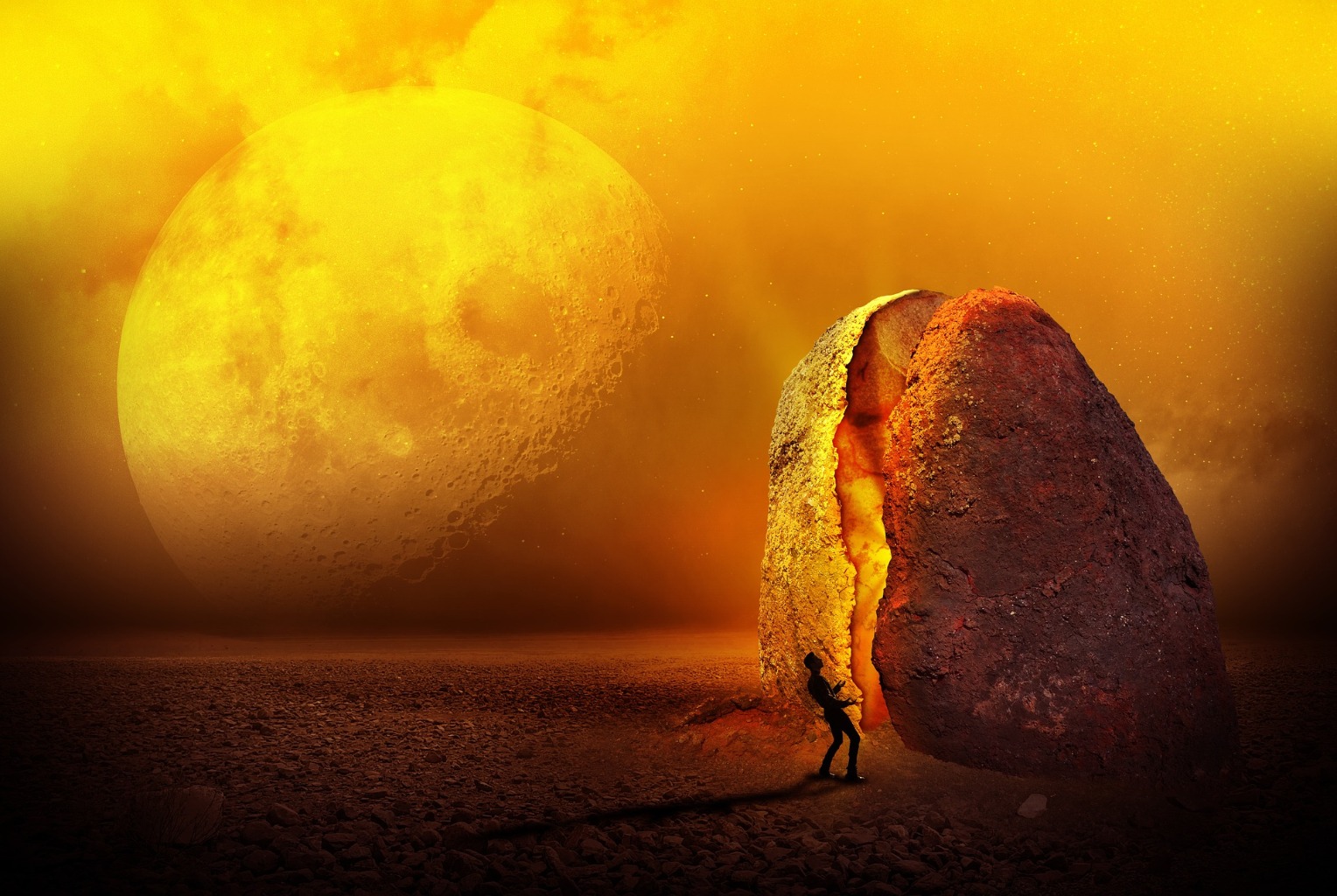
This week we announced our next short fiction contest after our first fairytale-themed short fiction contest went so well. While our fairy tale contest was going on, I wrote some fairytale-themed blog posts, which was a ton of fun.
This new contest revolves around worldbuilding. I’ve already written a few different blog posts about fantasy and sci-fi books with excellent worldbuilding. But for this week’s blog post, I thought I’d get into the nitty-gritty of worldbuilding as a writer.
Worldbuilding is one of the hardest parts of writing, particularly when you’re writing speculative fiction (which is the genre our contestants must write in). There is so much to consider that you start to feel like you might get lost in all your notes and research.
As an author of a sci-fi novel and a fantasy novel, I’ve put together a list of questions to ask yourself as you build your world.

1) Are you using a first, second, third-person limited, or third-person omniscient point of view?
One of the first steps of building your story’s world is deciding which perspective you are going to tell the story from. You may not think of this as a part of worldbuilding, but the way your reader views your setting is dependent on the eyes they look through.
There are advantages and disadvantages to each perspective. First-person brings the reader in close and is the most likely perspective to make the main character feel like a friend or confidant. But if you are using first-person, you are limited to seeing and knowing only what the protagonist sees and knows. This can be an advantage in some ways but can get frustrating as you write.
Second-person is less commonly used than first or third but offers some interesting storytelling possibilities. This perspective allows the reader to truly become the main character in the story with its use of “you”. DoubleBlind won our last short fiction contest using the second-person perspective in his enthralling story, “The Red Shoes”.
The third-person perspective can be used in one of two ways—limited or omniscient. A limited third-person perspective is told with “he” or “she” but, like first-person, is limited to the point of view of a single character. Third-person omniscient, on the other hand, has no such limits. The narrator knows everything about every character, and about the world of the story. This perspective can make worldbuilding much simpler but can make it harder for the reader to relate to the characters.

2) Are we on this planet or someplace else?
Speculative fiction can take place on Earth or in a number of other locations. If your story is science fiction, it might be set on another planet. Large portions of The Expanse series by James S.A. Corey take place on the planet, Mars. You could also set your story on an unknown planet many lightyears away, or on a spaceship ala Star Trek. There is the option of having your story take place in a parallel universe as well.
With a genre like fantasy, you can choose to set your story in an entirely different realm, which is like another dimension. It could be a medieval-esque world like the one in the A Song of Ice and Fire series by George R.R. Martin. Both The Expanse and A Song of Ice and Fire have been adapted into popular TV shows, showing the visual possibilities of putting the work into your setting.
With any speculative genre, there’s a lot to be said for setting your story right here on Earth. The Raven Cycle by Maggie Stiefvater is set in a fictional town in Virginia, while Practical Magic by Alice Hoffman takes place in Massachusetts. In Interview with the Vampire by Anne Rice, Louis’ story traces all the way back to 1791 Louisiana.
As you can see, the possibilities are seemingly endless when it comes to choosing the setting for your story. No matter what, you can have a ton of fun building the atmosphere of whichever setting you select.

3) Does your world include any strange creatures or aliens?
If you are writing speculative fiction, there is a good chance that not every being in your story will be human. In fantasy, your story could include creatures like dragons, unicorns, fairies, and several others. If you’re unsure of which fantastical beasties to include in your story, I would recommend going to the Internet and doing some research. The Wikipedia pages for various creatures can give you a lot of food for thought, as well as those on the Encyclopedia Britannica.
In science fiction, it is more likely that the strange creatures you’re writing about will be aliens. It is important to do a lot of brainstorming when it comes to what your aliens look like, what they eat/drink, where they come from, etc. Do they look different from humans, or no? Perhaps they have a way of looking human that hides what they truly look like. How do they survive? What is their home planet like, and if they left it, why?
The sorts of odd creatures you choose to include in your story will contribute greatly to the world you create. You don’t need to feel confined by the bounds of science fiction, fantasy, horror, etc. You should feel free to mix aliens and vampires into the same story, or fairies and cyborgs.
As with choosing the setting for your story, filling that setting with colorful creatures can be a blast, as can the research involved. This is an area where you can really unleash your creativity. While you may be inspired by creatures you find in your research, there’s nothing to stop you from creating entirely new beings (as I did with the monsters in Vita and the Monsters of Moorhouse).

4) What is the current state of technology?
Technology is a major facet of worldbuilding. Whether you’re writing a dystopian work or high fantasy, you need to think a great deal about the level of technology available to your characters. If you are writing high fantasy that takes place in a medieval setting, you’ll have to remember that your characters will only have access to the most basic technology and will rely on horses and carriages for transportation and candlelight instead of electricity.
Magic can play a huge role in your story’s technology. You may think that magic eliminates the need for technology since characters can just wave a magic wand and do basically anything. While this is true, the best magic in books has a strict set of rules and can co-exist quite nicely with technology. Here is an article on Nerdolopedia about incorporating technology into your fantasy world.
Futuristic science fiction provides fantastic opportunities for developing new technology. Since the time of your story hasn’t happened yet, you are free to invent whichever gadgets you please. It’s important, though, that your gadgets make scientific sense. You don’t have to go so far as to draw out detailed blueprints of your inventions or figure out precisely how they work, but they should have believably evolved from technology in its current state.
As you can see when you look around at the cell phones and tablets that are never far from people’s hands these days, it’s clear how much technology defines a world. So you should spend some serious time developing your world’s technology.

5) How have your central characters been affected by this world?
Once you have your world roughly sketched out, it’s time to think about how this atmosphere will affect your central characters. If you have chosen to add magical or alien beasties to your story, are any of your characters amongst them? If not, have they encountered these creatures? How does this encounter affect the character(s)?
You must also think about how the state of technology affects your characters. How do they travel from place to place, and how do they communicate long-distance with one another? As previously stated, technology has a large effect on the world in which we live.
Overall, you should consider all the facets of your world and how they might affect your characters. Have they lost anyone or experienced any hardships as a result of this world being the way it is? Has the climate of your particular setting affected your characters’ lives or personalities in any significant way?
I know worldbuilding can be rough, but I hope these questions will help to guide you on your way toward creating a stellar world for our worldbuilding contest. Remember that submissions are due Friday, August 5, 2022, 11:59 PM EST. Best of luck with your worldbuilding!
Follow us on Facebook | Instagram | Twitter | Discord